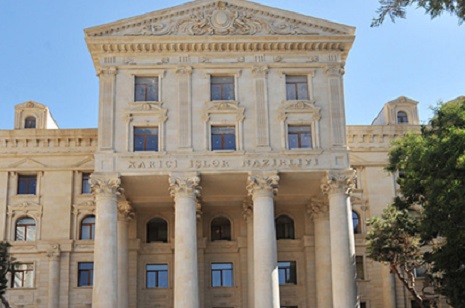"Since the 2005 World Summit and the adoption of Security Council resolution 1631, important progress has been achieved in enhancing cooperation between the United Nations and regional partners across the full range of areas, from maintenance of international peace and security and humanitarian assistance to development and the protection of human rights," the Minister said.
According to him, in a number of instances, relevant regional organizations have proven to be indispensable mechanisms in promoting international and regional peace, security and cooperation.
"Over the past decade, the role of the African Union has increased significantly. No doubt that the challenges that Africa faces today and that constitute a considerable part of the Security Council`s deliberations can be better addressed through collective political and diplomatic efforts. In that regard, we welcome progress achieved in developing the strategic relationship between the United Nations and the African Union in the area of peace and security," Mammadyarov said.
The League of Arab States has also proved to be one of those regional organizations that are able to take the lead in promoting peace, security and stability in the region. We are pleased to see that cooperation between the United Nations and the League of Arab States have been instrumental in carrying out important tasks in such areas as conflict prevention and resolution, crisis response and management, and the fight against terrorism and organized crime.
"As a member of the Security Council and an observer to the African Union and the League of Arab States, Azerbaijan will further support the development of partnership relations between these regional organizations and the United Nations," Azerbaijani Foreign Minister said.
He said the increasing role of organizations formed on the basis of shared cultural and linguistic values of their Member States, such as the Organization of Islamic Cooperation and the Cooperation Council of Turkic-Speaking States, gives rise to the need for exploring the opportunities and the appropriate approaches that can better serve the purpose of enhancing interaction and cooperation of these organizations with the United Nations across a broad agenda of mutual concern.
"At the same time, we should admit that serious challenges remain. While regional organizations are normally well positioned to understand the causes of armed conflicts owing to their knowledge of the region, it is however obvious that not all of them can boast of their ability, political will and institutional capacity to ensure the compliance by Member States with their statutory commitments," Mammadyarov said.
First and foremost, it is crucial that all Member States adhere to their obligations, as laid down in the Charter, with respect to the sovereignty, territorial integrity and political independence of States, the Minister noted.
"We express our concern at attempts undertaken in some situations of armed conflict with a view to misinterpreting the norms and principles of international law and downplaying the relevance of the Security Council resolutions," according to the head of Azerbaijani Foreign Ministry.
Mammadyarov said it is therefore important that at our meeting today the Council stressed the importance of a coordinated international response to causes of conflict and called the international community, including United Nations organs and agencies, to assist the efforts at the regional level aimed at the peaceful settlement of disputes and the prevention and resolution of conflicts in accordance with the Charter of the United Nations and relevant Security Council resolutions.
The Council also stressed that regional partners must at all times keep it informed of their activities in the area of peace and security, Mammadyarov noted.
As a matter of priority, special attention should be given to the implementation of Security Council resolutions, in particular those related to the prevention, management and settlement of conflicts, the Minister said.
In its presidential statement just adopted, the Security Council emphasized that ending impunity is essential in a conflict and post-conflict society`s efforts to come to terms with the past wrongs and that regional and sub-regional organizations should contribute to individual accountability, the Minister said.
"As a country suffering from the occupation and large-scale ethnic cleansing of a significant part of its territory, Azerbaijan strongly supports that approach in working to address protracted conflicts and their humanitarian and human rights consequences in different parts of the world," Mammadyarov added.
The conflict between the two South Caucasus countries began in 1988 when Armenia made territorial claims against Azerbaijan. Armenian armed forces have occupied 20 per cent of Azerbaijan since 1992, including the Nagorno-Karabakh region and seven surrounding districts.
Azerbaijan and Armenia signed a ceasefire agreement in 1994. The co-chairs of the OSCE Minsk Group, Russia, France and the U.S. are currently holding peace negotiations.
Armenia has not yet implemented the U.N. Security Council`s four resolutions on the liberation of the Nagorno-Karabakh and the surrounding regions.
More about:
















































